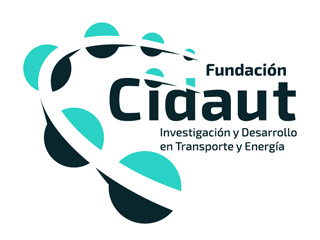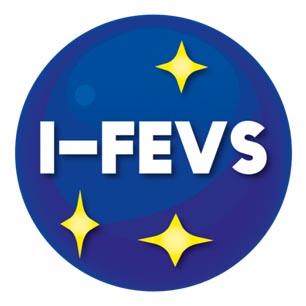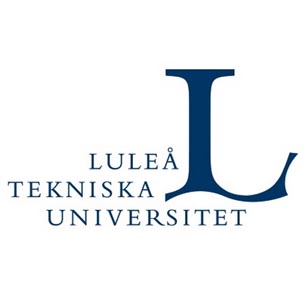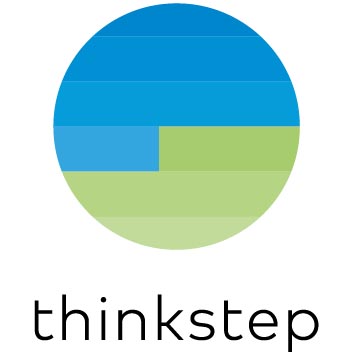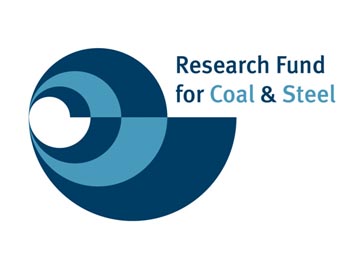Partners
1. Fundación CIDAUT
Fundación CIDAUT is a private non-profit institution committed to strengthening the industrial fabric in the transport and energy sectors, through specific research and development programs. CIDAUT has as main objective to increase the competitiveness and industrial development of companies from the Transport (including aeronautical and surface transport) and Energy sectors, strengthening their technological capabilities to develop new products and processes through R&D. CIDAUT has extensive experience in project management at Regional, National and European level, as it has been the leader of more than 300 research projects since 1993. Moreover, it has participated in more than 77 EU projects, coordinating 16 of them. CIDAUT’s research programs are closely connected with the following technological areas: safety; product-process improvement; environmental issues; engines and energy systems. CIDAUT applies concurrent engineering techniques, including industrial processes, and is capable of arriving at the full industrialisation of the solution for active, passive and preventive safety, steering and suspension systems, interior components and subsystems, accident studies, road infrastructure design and homologation, human factors analysis, and automotive acoustics. In the last years CIDAUT has been deeply involved in the electrification of transport by cooperating in FP7 and H2020 research projects to promote the mass roll out of electric vehicles, the adoption of new technologies, the development of electric power trains, and the integration of electric vehicles to the grid and homes.
In STEEL S4 EV, CIDAUT will be the project coordinator. This work is ensured by years of experience in previous national and European Research Projects, starting from FP5 and working actively in H2020 proposals. Besides, CIDAUT will develop simulation tools to help the taking of manufacturing decisions and will put its laboratories at the service of the microstructure inspection and material testing activities of the project. CIDAUT will also lead the dissemination and IPR management activities.
2. INTERACTIVE FULLY ELECTRICAL VEHICLES SRL (IFEVS)
I-FEVS is focused on the engineering and advanced manufacturing of novel architectures of Micro electrical vehicles.
I-FEVS is a member and major driver of the cluster Torino e-district addressing the overall value chain of electromobility with a focus on Micro EVs, including New concepts, Design and simulations, Mass production of specific enabling systems (motor drives, transmission, HAVC, smart photovoltaic, remote control systems…), Running vehicle prototypes, and Large scale production of Micro EVs by low cost turn-key assembly pants capable of producing 50 vehicles a day in collaboration with Comau and Magnetto Automotive.
I-FEVS work has made possible innovations such as micro EVs and M1 4WD and 4WS with two independent axles, micro EV and first M1 having implemented battery partition with totally independent battery packs, partial battery swapping concepts for advanced V2H, the introduction of the first microEV fully compliant with EuroNCAP most stringent safety ratings, the definition of fundamental EMF rules to design a safe EV, and the demonstration of 20 km average daily range by smart photovoltaic energy only.
The large network of collaborations established in EU Member States, Russia and Japan allows the company to maintain a leading position for state-of-the-art Research and Development in all forms of electro-mobility. I-FEVS is the principal originator of the EU-MOBY platform aiming at the development of technologies for Micro EVs.
3. BELGISCH INSTITUUT VOOR LASTECHNIEK VZW (BWI)
BWI (the Belgian Welding Institute) is a collective research centre with members various welding related sectors (automotive, transport, construction, (petro-chemical industry). BWI has extensive recognised expertise in joining, material weldability, testing of materials and weldments, with a particular focus on in service use. The necessary knowledge to execute the proposed project is therefore to a large extent available.
BWI cooperates actively in several national and international projects, as well as in bilateral projects for specific companies and internal research (strategic research) projects. On a regular basis, for certain new products, extensive investigations are carried out to assist companies in choosing the right joining process, based on technical and economical factors.
BWI counts with relevant equipment to carry out this research, for example: a welding robot, metallographic laboratory, macro- and micrography, hardness and micro- hardness; scanning electronic microscope (SEM); equipment for thermal simulation (Gleeble, Smitweld); welding equipment for registration of welding parameters (ALX); bending, tension, compression, toughness, CTOD, and heat treatment furnaces
In addition, the BWI is a member of: The European standardisation Committee, The International Institute of the welding (IIW) (BWI trainings are also recognised at the international level by IIW), European Federation for Welding, Joining and Cutting (EWF), and the Flemish umbrella organisation of technology providers (VLOOT).
4. LULEA TEKNISKA UNIVERSITET (LTU)
(Luleå University of Technology (LTU) (Sweden) is among the six largest technical universities in Sweden. It has long experience in development and investigation of advanced high strength steels (AHSS) and in development of different laser treatment processes. The laser laboratory has been running different laser treatment processes during almost 40 years. Laser welding is one of the main areas of experience of the unit. The division of Materials Science has long experience in development and analyse of high strength steels. The research unit of Engineering Materials has been working with carbide free bainitic steels (CFB) in RFCS projects DUCTAFORM (2008-2011), NANOBAIN (2008-2011) BAINWEAR (2014-2018) and with different AHSS:s in the RFCS project HIPEBA (2014-2017). The laboratory at the Materials Science Division includes thermomechanical simulator, (Gleeble 3800), different computer programs for computation of phase- and microstructure- changes (Thermocalc, Dictra and TC-Prisma) and different equipment for microstructure investigation (SEM, HR-SEM, XRD). The infrastructure of the university gives also the possibility to use other advanced equipment as tensile test machines and fatigue testing equipment.
Role: LTU will carry out the experiments with autogenous laser welding methods including modification of the heat input by adding heat sources (induction heating, beam shaping). For improved understanding, high speed imaging will be applied. In addition, analysis of the microstructure of the welded specimens and tensile, hardness and impact testing will be conducted at LTU.
5. MA SPA (MA SPA)
MA S.p.A. is the automotive division of CLN Group. MA is a leader in the production of metal parts for the automotive sector, for every type of vehicles (passenger car, light commercial vehicles, heavy truck). MA Headquarter is in Rivoli (Torino). Technical Office and R&D Department are responsible for analyses and optimization of standard products and of all the activities focused on innovation of parts as well as the processes for their manufacturing.
The company includes other production sites in several countries (Italy, France, Poland, Germany, Russia, Turkey, South Africa, Brazil, Argentina, China) and is present worldwide also thanks to technical collaborations with other industrial partner belonging to the same sector. Today all the major car manufacturers of the world are MA’s customers (MA as tier1).
MA is part of CLN Group, whose headquarter is in Caselette (Torino). CLN Group is generally involved in the supply of steel blanks and in their transformation into vehicle structural parts and panels (MA: automotive division) and wheels (MW). All the divisions belonging to CLN Group are strongly present worldwide thanks to several production sites and service centres placed on the most important markets as well as to effective and continuous collaborations with the major steel producers of the world, private and public R&D centres and OEMs’ technical departments.
6. THINKSTEP AG (THINKSTEP AG)
Thinkstep AG (until May 2015 known as PE International AG) enables organisations worldwide to succeed sustainably. Our industry-leading GaBi, SoFi, BOMcheck, IMM, Cloud Apps and further sustainability software, data and consulting services help private and public sector organisations drive operational excellence, product innovation, brand value and regulatory compliance. With a global presence in 18 countries we serve more than 2,000 companies, including 40 percent of the Fortune 500 such as BASF, Hewlett-Packard, Interface, Renault, Siemens and Unilever, as well as many public authorities worldwide, including several services of the European Commission.
Role: Thinkstep will provide the PLM-platform Siemens TC and facilitate an automated calculation of cost, LCC and LCA, that will be novel to the automotive and other industries and will facilitate the integration of LCC and LCA target monitoring directly into the design process.
6. Research Fund for Coal & Steel (RFCS)
MThe Research Fund for Coal and Steel (RFCS) supports research and innovation projects in coal and steel sectors.
Every year around €40 million is made available to universities, research centers and private companies to fund projects.
These projects cover
• production processes
• application, utilisation and conversion of resources
• safety at work
• environmental protection
• reducing CO2 emissions from coal use and steel production
The fund is managed by the Commission in cooperation with the following committees and advisory groups.
• The Coal and Steel Committee (COSCO). Composed of representatives of EU countries. Its role is to assist the Commission in the overall management of the fund.
• The Coal and Steel Advisory Groups (CAG/SAG). Composed of technical advisers, appointed by the Commission to serve for a period of 42 months. Their role is to advise the Commission.
CAG members and group details available on Register of Commission Expert Group and other Similar Entities
SAG members and group details available on Register of Commission Expert Group and other Similar Entities
• Technical Groups (TG). Composed of technical experts, appointed by the Commission. They support the Commission with monitoring of research/pilot or demonstration projects.

